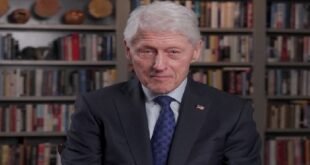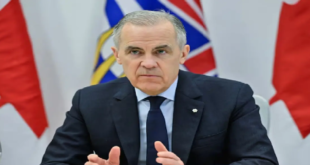04-07-2025
WASHINGTON/ NEW DELHI: India and America trade negotiators were pushing on Wednesday to try to land a tariff-reducing deal ahead of President Donald Trump’s July 9 negotiating deadline but disagreements over US dairy and agriculture remained unresolved, sources familiar with the talks said.
The push comes as Trump announced an agreement with Vietnam that cuts US tariffs on many Vietnamese goods to 20% from his previously threatened 46%. Trump said that US products could enter Vietnam duty free but details were scant.
 Trump threatened a 26% duty on Indian goods as part of his April 2 “Liberation Day” reciprocal tariffs, which were temporarily lowered to 10% to buy time for negotiations.
Trump threatened a 26% duty on Indian goods as part of his April 2 “Liberation Day” reciprocal tariffs, which were temporarily lowered to 10% to buy time for negotiations.
Sources in India’s commerce ministry said that a trade delegation from India was still in Washington a week after arriving for talks that started last Thursday and Friday.
They may stay longer to conclude a deal but without compromising on key agricultural and dairy issues, the sources said, adding that it was unacceptable to lower tariffs on genetically modified corn, soybeans, rice and wheat grown in the US Prime Minister Narendra Modi’s government “doesn’t want to be seen as surrendering the interests of farmers, a strong political group in the country,” one of the sources said.
However, India is open to lowering tariffs on walnuts, cranberries and other fruits, along with medical devices, autos and energy products, the source said.
A US source familiar with the talks said that there were “indications that they are close” and negotiators have been told to prepare for a potential announcement.
The source added that “there’s been intense and constructive effort to close a deal. I think both sides understand the strategic importance, beyond the economic importance, of closing a deal.”
Trump echoed those sentiments on Tuesday, telling reporters on Air Force One that he could reach a deal with India that would cut tariffs for both countries and help American companies compete in India’s market of 1.4 billion consumers.
 At the same time, Trump cast doubt on a potential deal with Japan, saying he may impose a tariff of 30% or 35% on Japanese goods, well above the 24% duty rate he announced on April 2. Japan is seeking to lower separate 25% automotive and steel tariffs that Trump imposed.
At the same time, Trump cast doubt on a potential deal with Japan, saying he may impose a tariff of 30% or 35% on Japanese goods, well above the 24% duty rate he announced on April 2. Japan is seeking to lower separate 25% automotive and steel tariffs that Trump imposed.
India and the United States, locked in negotiations to hammer out a trade deal with before the July 9 tariff deadline ends, will need some “face-saving compromise”, said Meera Shankar, former Indian envoy to the US, during a televised interaction with NDTV Profit on Wednesday.
“There are no carrots for India at all in the stance that the US has adopted at present”, she said, adding that Trump’s negotiating stance is that “I hold the stick, and if you open up, I won’t use it”.
Shankar believes that analysts who say that India can fill the vacuum which China may leave due to the US tariffs should have a re-think. “Those who are very confident that we can fill the space if China has higher tariffs… I think they need to take a realistic look at this,” she said.
On other hand, Pramod Bhasin, chairman of Indian Council for Research on International Economic Relations, is of the opinion that most of what Trump says should be ignored and that tactical negotiations will suffice in securing a mutually beneficial trade deal.
He also added that India can help fill the vacuum that will be left by China by reducing tariffs on products that will not harm the Indian producers. “There are areas where we can reduce tariffs like whiskey, wine, walnuts. We can reduce tariffs to allow more American imports without damaging local producers.”
 Pressmediaofindia
Pressmediaofindia




